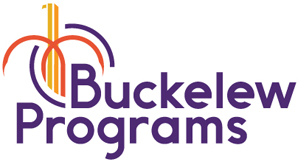A planned gift is a meaningful way to support Buckelew Programs. Members of the Buckelew Programs Legacy Circle are committed to continued philanthropic support for upholding values of justice, equity and parity in the delivery of all aspects of behavioral health services for future generations. Legacy Circle members receive special bi-annual updates on our community impact.
A Gift in Your Will or Trust
Whether you designate a specific amount or a percentage of your estate, making a gift to Buckelew Programs in your will or revocable living trust costs nothing to make now, is simple to arrange and has a lasting impact in serving people living with mental health and substance abuse challenges.
To leave a gift to Buckelew Programs, you can including the following language in your will, revocable living trust, and estate plans:
Attached is a document you can download or print.
Unrestricted Bequest:
I give [ __ percent of my estate, or description of asset, or ____ dollars] to Buckelew Programs, a California nonprofit corporation, 201 Alameda del Prado, Suite 103, Novato, CA 94949 (Buckelew Programs Tax ID 23-7088977), for its greatest needs.
Restricted Bequest:
I give [ __ percent of my estate, or ___ dollars, or description of asset] to Buckelew Programs, a California nonprofit corporation, 201 Alameda del Prado, Suite 103, Novato, CA 94949 (Buckelew Programs Tax ID 23-7088977), for the restricted purpose of _______. If, in the future, Buckelew Programs determines that the restriction placed herein would result in an impracticable use of the bequest, it may designate another purpose for its use that most nearly accomplishes my wishes.
Percentage of Residue:
I give [ __ percent of the residue of my estate] to Buckelew Programs, a California nonprofit corporation, 201 Alameda del Prado, Suite 103, Novato, CA 94949 (Buckelew Programs Tax ID 23-7088977), for its general use OR for the restricted purpose of _______. If, in the future, Buckelew Programs determines that the restriction placed herein would result in an impracticable use of the bequest, it may designate another purpose for its use that most nearly accomplishes my wishes.
Beneficiary Designations
A beneficiary designation offers numerous flexible options to support Buckelew Programs.
Bank and brokerage accounts:
Assets like bank and brokerage accounts, CDs and savings bonds can be wonderful gifts to use to create your legacy at Buckelew Programs. Simply name Buckelew Programs as the pay-on-death (POD) or transfer-on-death (TOD) beneficiary of these assets.
Donor advised funds (DAFs):
You can name Buckelew Programs as the beneficiary of your entire fund, or a percentage, leaving the balance in your DAF to allow your children and grandchildren to continue your philanthropy.
IRA, 401k’s, and other retirement plan assets:
As retirement plans are taxed differently than other assets, they can become a tax liability when inherited. Designating Buckelew Programs as a beneficiary of these assets can reduce or eliminate this liability. You can include Buckelew Programs on the beneficiary designation form to receive a specific percentage of your account value or as a contingent beneficiary.
Life insurance:
You may have a life insurance policy you purchased years ago and no longer need. You can name Buckelew Programs as a full, partial, or contingent beneficiary of your policy.
You can also sign over a fully paid policy and receive a tax deduction for your gift.
Individual Retirement Account (IRA) Gifts
IRA Qualified Charitable Distributions:
IRA Qualified Charitable Distributions (QCDs) allow donors, 70 ½ or older, to make gifts today to charity from their IRA. QCDs are made directly from the donor’s IRA account to a qualified public charity. Qualified Charitable Distributions count toward a donor’s required minimum distribution or RMD. And, as IRA QCDs pass tax-free to charity, 100% of your gift will go to Buckelew Programs.
Legacy IRA Distributions:
As traditional IRAs are taxed differently than other assets, they can become a tax liability when inherited. Designating Buckelew Programs as a full or partial beneficiary of your IRA can reduce or eliminate this liability for your heirs. You can name Buckelew Programs on the beneficiary designation form and designate the percentage of your IRA you wish to leave as a legacy gift.
Legacy Circle
Have you already included Buckelew Programs in your will or trust? We want to thank you, so please let us know of your legacy gift. Legacy Circle members will receive special bi-annual updates on our community impact.
We respect the choice of donors who wish to remain anonymous and gift details are not required for Legacy Circle membership.
Get in Touch
If you have additional questions about the Buckelew Programs Legacy Circle, please Contact Pat Gallagher, Chief Philanthropy Officer, at 415.491.5748 or PatG@Buckelew.org.
The content found on this site is general in nature and intended to be used for informational purposes only. It should not be relied upon as legal, tax, accounting or other professional advice. To determine how a gift or estate planning decision might affect your particular circumstances, it is expressly recommended that you consult an attorney, financial advisor or other qualified professional.


“My wife and I decided to join the Buckelew Programs Legacy Circle after we witnessed first hand the impact they’ve made on people we care deeply about. Their Suicide Prevention Hotline has operated continuously for more than 50 years and has provided intervention to more than 300,000 people experiencing a mental health crisis. We’re proud to be able to make a difference in our community through our Legacy Circle support.”
Legacy Circle Members
Santa Rosa, California
The content found on this site is general in nature and intended to be used for informational purposes only. It should not be relied upon as legal, tax, accounting or other professional advice. To determine how a gift or estate planning decision might affect your particular circumstances, it is expressly recommended that you consult an attorney, financial advisor or other qualified professional.
